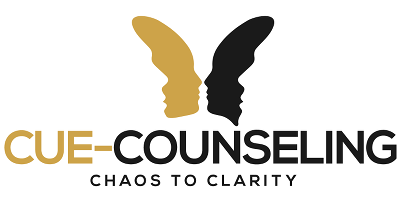Struggling Mentally? You’re Not Alone.
Mental health challenges are more common than ever. With over one in five U.S. adults experiencing some form of mental illness, seeking therapy is not only normal—it’s necessary.
But despite how widespread emotional struggles have become, many people still feel ashamed to ask for help. Let’s talk about why that stigma needs to go—and how therapy could change your life.
Even the Strongest Among Us Need Help
Human beings are resilient, resourceful, and capable of incredible growth. But even the most accomplished individuals can’t do everything alone.
Take Michael Phelps, for example—one of the greatest Olympians of all time. He publicly acknowledged turning to therapy when he couldn’t manage his inner battles alone. If someone with that level of discipline and success can seek help, so can you.
Needing support isn’t weakness—it’s wisdom.
Therapy Isn’t What You Think It Is
Many people misunderstand what therapy actually involves. Here’s what good therapy is not:
-
It’s not about blaming others.
-
It’s not just chatting aimlessly.
-
It’s not someone solving your problems for you.
-
It’s not reserved for people who are “broken.”
Instead, therapy is action-oriented, evidence-based, and collaborative. It helps you identify patterns, process pain, build emotional resilience, and improve your relationships and self-understanding.
The Stigma Around Therapy Is Outdated
The outdated belief that therapy is only for the weak or unstable is harmful and untrue. Often, it’s those avoiding their inner world who fear therapy the most.
Real therapy requires bravery—a willingness to face hard truths about yourself and your past. But through that process, you gain clarity, peace, and healing.
Mental Health Challenges Are a Global Issue
According to the National Institute of Mental Health, over 57 million American adults live with a mental illness. That’s 1 in 5 people.
If you’re dealing with anxiety, depression, trauma, or stress—you are not alone. Mental health struggles are not personal failures. They’re challenges, just like physical illness, that deserve proper care and attention.
Therapy Isn’t a Luxury—It’s a Lifeline
Maslow’s Hierarchy of Needs reminds us that after food and shelter, we also need safety, love, esteem, and self-actualization to thrive. Mental health is deeply connected to all of these.
Therapy is not just for the privileged. In fact, unresolved trauma or emotional pain can interfere with your ability to meet even your basic needs. Taking care of your mind can unlock your potential and radically improve your quality of life.
Therapy Could Be the Turning Point
If you’ve been silently struggling, it may be time to take the next step.
Here’s what to remember:
-
You’re not alone.
-
You don’t have to suffer in silence.
-
You don’t have to do it all by yourself.
-
Therapy is a powerful act of courage and self-respect.
The hardest part is often the first step—but it could be the most important one you ever take.
Takeaway
Therapy is not a sign of weakness—it’s a step toward healing.
Whether you’re overwhelmed, stuck, or simply curious about personal growth, therapy can help you find clarity, connection, and strength.
Let this be the moment you stop feeling ashamed and start prioritizing your well-being.
